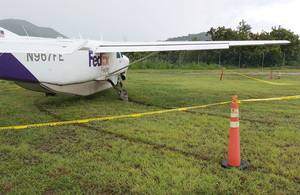New and returning students urged to apply now for student finance
In 2020, SLC processed and paid more students than ever before and the next academic year looks set to be another record-breaker. Data published by UCAS showed 42.6 percent of all 18-year-olds had applied for university by the main January deadline, which is up from 39.5 percent on last year. At the Student Loans Company, we have already experienced a significant increase in applications, with applications up by more than 10% on last year.
Given the current economic climate, SLC’s role in enabling access to further and higher education has never been more important. It is our responsibility to ensure students have the finance in place to help them achieve their academic aspirations; and, so that students have the best possible start to their course, we want that finance to be in place by the start of the academic year.
We are looking very carefully at how the increasing applicant numbers may impact on the delivery of our services this year. Undoubtably, the high volume of students coming through the system will put pressure on us. This is particularly true at a time when we continue to prioritise the health and safety of colleagues by supporting them to work remotely due to Covid-19. We expect that over our peak periods this year we will very busy – in particular, we could see longer call queues, meaning customers may have to wait for longer than usual to speak with us. I am grateful for the patience that has been shown by our customers to date and I hope they will be reassured to know we are doing everything we can to ensure that any impact is minimal.
There is one simple step undergraduate students and potential students can take to ensure they have the student finance in place before term start this year – and that is to apply online now.
Applications are open for undergraduate students in England and students in Wales will be able to apply from late April. By applying before the deadlines (21 May for new students and 25 June for returning students) students can be confident their finance will be in place when their studies start.
Students should apply now even if they are unsure what course they will be doing or what university they will attend. If students wait for a confirmed offer before applying for student finance, it may be too late to have student finance in place by term start.
Applications take six to eight weeks to process so students do not need to contact us during this time to check on the status of their application. We will contact them, or their sponsors, should we require any additional information to support their application.
Since the start of the pandemic, we have provided support to customers by making additional information available online. Over the coming weeks and months, we will continue to provide extra information to address some of the key questions that we know new and returning applicants have at this time of year. So, if you are a student, a parent or sponsor and have any questions for us, I would urge you to visit our FAQs or get in touch with us by social media, and of course, apply now to ensure your student finance is in place for start of the next academic year.


